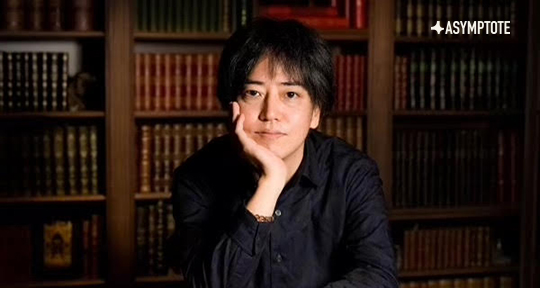An ultranationalist religious cult infiltrating the highest levels of the Japanese state—the story of the Unification Church is, as Fuminori Nakamura writes, “straight out of a manga”. Yet the shooting of Shinzo Abe in July, by a man who lost his family to the cult-like practices of the Unification Church, has shone a light on the worrying ease with which fringe religion can infiltrate mainstream politics—and not only in Japan, Nakamura argues, but in embattled democracies across the world. With Abe’s state funeral held earlier this week, his essay, the first in a new series of translated opinion pieces we are hosting in our Saturday column, sounds the alarm at an important time.
The relationship between politics and religion in Japan is deeply rooted. When considering the current iteration of the Unification Church’s connections with Japanese politics, it brings to mind the era in the 1930s when Japan was progressively listing toward war with the United States. Before getting into that, however, first allow for a brief review of the attack on Japan’s former prime minister, Shinzo Abe.
On July 8, 2022, Mr. Abe was shot and killed while giving an endorsement speech ahead of the national election. The suspect who fired the gun is a forty-one-year-old man, Tetsuya Yamagami. His family was destroyed by cumulative donations his mother had made as a member of the Unification Church. Allegedly his intention had been to target the current leader of the church, Hak Ja Han Moon, the widow of the founder of the Unification movement, but he targeted Mr. Abe instead because he was, to use Yamagami’s own words, “the most influential person who was sympathetic to the Unification Church.” (Author’s note: Though in Japan it is still referred to as “the former Unification Church,” the church changed its name to the Family Federation for World Peace and Unification, but to avoid confusion I will use its previous designation.)
Since the incident, the depth of the Unification Church’s relationship with, in particular, the ruling Liberal Democratic Party (LDP) is increasingly clear. In Japan, the Unification Church is considered a cult: among their practices, the church tells followers that their ancestors are suffering in the next world and compel them to buy exorbitantly priced jars called “tsubo” (for several million yen) and scriptures called “seihon” (for ¥30,000,000, which is about 50,000 times the cost of a paperback edition of one of my novels in Japan). They also conduct mass weddings where members marry someone chosen for them by the church. Ostensibly, they advocate rather strongly for conservative and right-wing causes. In their desire to rewrite Japan’s pacifist constitution that includes a renunciation of war in order to empower the military as well as their refusal to acknowledge the rights of LGBTQ people, the church bears a strong affinity with the LDP. This has enabled a cult to infiltrate the center of Japan’s politics. Reports about the church’s ties with high-ranking officials within Japan’s National Police Agency as well as the chairman of the Public Safety Commission depict a world straight out of a manga. READ MORE…

